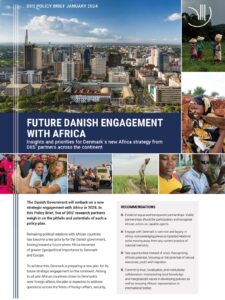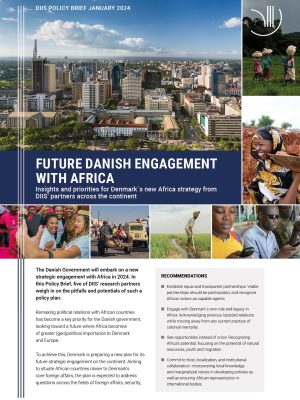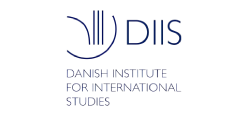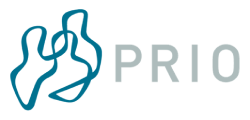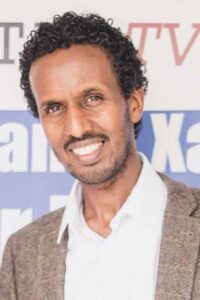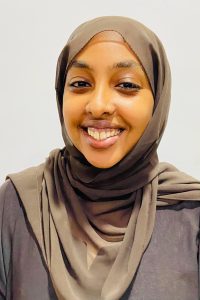Policy brief
Future Danish engagement with Africa: Insights and priorities for Denmark´s new Africa strategy from DIIS’ partners across the continent
Mary Boatemaa Setrana, Rahma Hassan, Faisal Garba, Mohamed Aden Hassan, Meron Zeleke Eresso, Adam Moe Fejerskov, Nauja Kleist & Mikkel Funder
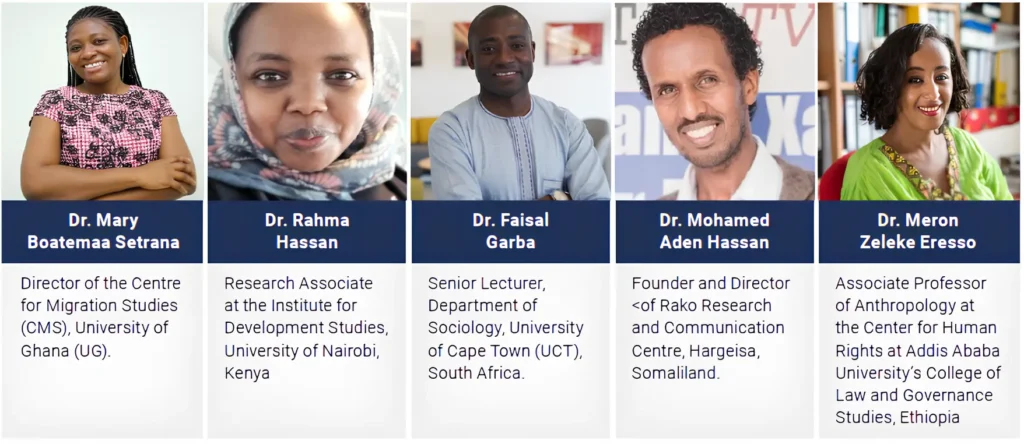
Remaking political relations with African countries has become a key priority for the Danish government, looking toward a future where Africa becomes of greater (geo)political importance to Denmark and Europe.
To achieve this, Denmark is preparing a new plan for its future strategic engagement on the continent. Aiming to situate African countries closer to Denmark’s core foreign affairs, the plan is expected to address questions
Recommendations
- Establish equal and transparent partnerships: Viable partnerships should be participatory and recognize African actors as capable agents.
- Engage with Denmark´s own role and legacy in Africa: Acknowledging previous lopsided relations while moving away from any current practice of colonial mentality.
- See opportunities instead of crisis: Recognizing Africa’s potential, focusing on the potential of natural resources, youth and migration.
- Commit to trust, localization, and institutional collaboration: Incorporating local knowledge and marginalized voices in developing policies as well as ensuring African representation in international bodies.
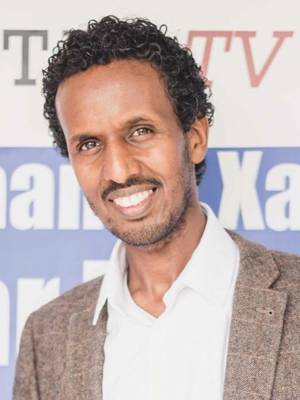
Mohamed Aden Hassan
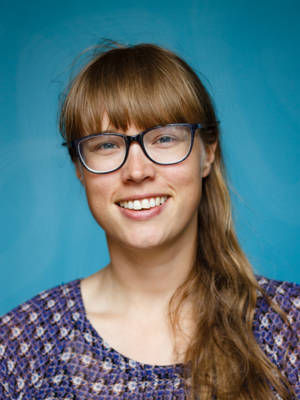
Ebba Tellander
The Danish Government will embark on a new strategic engagement with Africa in 2024. In this Policy Brief, five of DIIS’ research partners weigh in on the pitfalls and potentials of such a policy plan.
Mary Boatemaa Setrana, Rahma Hassan, Faisal Garba, Mohamed Aden Hassan, Meron Zeleke Eresso, Adam Moe Fejerskov, Nauja Kleist & Mikkel Funder

Remaking political relations with African countries has become a key priority for the Danish government, looking toward a future where Africa becomes of greater (geo)political importance to Denmark and Europe.
To achieve this, Denmark is preparing a new plan for its future strategic engagement on the continent. Aiming to situate African countries closer to Denmark’s core foreign affairs, the plan is expected to address questions
across the fields of foreign affairs, security, development, and trade, and focus on equal partnerships. The government has indicated a need to build on the mantra of ‘preaching less and listening more’ – as the Danish minister for foreign affairs framed it at a recent visit to Kenya – with political relations based on a ‘pragmatic idealism’ and more genuine forms of cooperation that reflect mutual interests.
In this Policy Brief, some of DIIS’ African research partners consider key questions on what it takes to achieve equal partnerships, what a new Danish strategic engagement with Africa should look like, and what it should refrain from.
Equal and transparent partnerships
To ensure the development of a worthwhile new strategy for engaging Africa, the Global North’s engagement on the continent needs fundamental remaking. African actors are capable agents and viable partnerships should be transparent and participatory, and not paternalistic.
‘ Who are the stakeholders, and are Africans involved voicing their interests? We have pointed out the unequal power dynamics where Africa becomes the recipient of politics made in Europe and our concerns aren’t reflected. Whoever has the power has a louder voice. Is it your plan for us? We’re talking about de-centering knowledge and resources and that there is a general need to reframe engagement so that it is bi-directional and with equal power. The idea about plans for Africa is repeating a colonial mentality – so what is in it?’
– Mary Boatemaa Setrana
‘ A real partnership of equals requires first a decolonization of relations between the two, and that can best be done by engaging Africans in the process and having them on board from the start of the planning. Likewise, it requires transparency regarding what the Danish national interest is when forging partnerships with Africa—it is clear that altruism is not the only game in town. The more transparent partners are, the better they negotiate.’
– Meron Zeleke Eresso
‘ Equal partnerships are hard to achieve when there is an inherent power imbalance as is currently the case between the North and South. A first step for Denmark’s new “Africa policy” is therefore to begin with a genuine acknowledgement and reflection on the power hierarchies of the past. In this way, Denmark can show that it is ready to move forward into a new paradigm for collaboration’.
– Rahma Hassan
Coming to terms with Denmark’s role
Explicitly engaging with Denmark´s own role and legacy in Africa is pertinent for forging genuine partnerships. This implies equal power relationships and acknowledgement of previous lopsided relations while moving away from any current practice of colonial mentality.
‘ The anticipated shift of policy towards recognition of the continent’s potential future importance is an applaudable one. We often tend to think of the concept of partnership as illusory in a context where the relationship between the two allying parties remains both unequal and inequitable. But in my opinion, overcoming decades of unequal political dialogue is attainable as long as there are three essential considerations: Denmark must engage in a genuine admission of past failures in initiatives and misdeeds, a genuine critical reflection on the exploitive and domineering nature of previous partnerships, and stocktaking of what has worked well and what hasn’t.’
– Meron Zeleke Eresso
‘ While Denmark did not support military struggle in the anti-apartheid struggle in Southern Africa, its early and clear position on sanctions, support for humanitarian efforts and building international solidarity against Apartheid, set Denmark and, I suppose, the other Scandinavian countries, apart in the popular evaluation of power relations between Africa and the West. That said, Denmark has a complicated legacy in Africa: its involvement in enslavement and certain controversial roles in the Sahel leads to its association with problematic European attitudes towards Africa.
– Faisal Garba
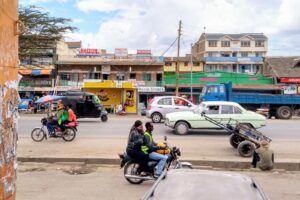
Opportunities over crisis
A key aspect of a new Danish Africa plan is to rethink previously held assumptions about the continent. That means recognizing Africa’s potential, focusing on the productive potential of natural resources, youth, migration, and opportunities for mutual benefits. It is essential to see Africa as an opportunity rather than a problem, moving beyond crisis narratives.
‘ Our continent has immense and valuable minerals and resources as well as an ever-growing young population. This can be very positive but brings huge challenges and requires support for education and entrepreneurship. How do you link that with supporting digitalization and local resources, making sure that the youth get a fair share of these resources and help them with education and economic development? There is lots of talk about democracy but no consensus about what this means locally. Africans in general are becoming fed-up with leaders and presidents for life and raise questions about international support for such leaders. The persistent power grabbing and control for decades has led to deep-rooted resentment of dynastic style governance and politics. Where does Denmark stand on this, if it is serious about supporting local standards with often culturally, and sometimes religiously, infused democracy, good governance, and accountability?’
– Mohamed Aden Hassan
‘Reports on African affairs in Europe and the US tend to focus on crisis narratives, e.g. conflict, food security, climate change and involuntary displacement. These issues certainly require attention, but they are not special to Africa. The continent has endless opportunities for the future, and Africa’s abundant natural resources and growing population should be seen as a positive resource. In other words, Denmark should stop seeing African countries as a place only of crises. A strong and effective relationship includes looking seriously at what Africa’s own regional, national and local institutions are aiming for, and engaging the many partners with which Denmark is already working in African countries.’
– Rahma Hassan
‘ Migration needs to be in the plan – but not in terms of refusing and heavily restricting entry of migrants. Migration should be linked to development, such as diaspora engagement and the benefits of return migration and remittances, even at micro-level to families. Why isn’t Europe into employing labour from Africa? There should be an increasing number of bilateral agreements with African countries – not only for skilled labour, but also medium and low-skilled. Don’t recruit our doctors for cleaning because of the rigidity of the labour system and difficulties of recognizing qualifications. Rather negotiate with African governments and enhance employment through skills-matching and upgrading of skills.’
– Mary Boatemaa Setrana
Trust, localization, and institutional collaboration
Finally, DIIS’ research partners call for explicitly addressing the value of local perspectives and the importance of trust. Recognizing and incorporating local knowledge and marginalized voices in developing policies is crucial, as is incorporating African representation in international bodies and ensuring equity at other structural levels.
‘ There are different knowledges about what works. Part of the unequal relationships of past development cooperation is that it has been driven by “expert knowledge” from the North. Acknowledging partners’ local knowledge instead of offering external solutions as donors is also a step towards authentic partnerships. An equal partnership also recognizes that some groups are marginalised, and some voices are left out. Developing an “Africa policy” dominated by government leaders, international NGOs and large private sector actors will not be enough – there is a strong need to engage the grassroots in developing and carrying out the policy. This includes working to ensure that citizens’ own agency, knowledge and rights are at the centre of collaboration in a field such as climate change. Due to the established conventions of bilateral and multilateral aid, local organizations and citizens are rarely de facto involved in determining the priorities in bilateral and multilateral collaboration, and Denmark should take community-led approaches to change more seriously.’
– Rahma Hassan
‘ Trust in local actors is important. Many people here feel that funds provided by international donors do not reach the intended recipient in their entirety and believe that this is because donors do not trust locals with their funds but go through international agencies and fund managers. Many question the reasons why international donors adopt this policy as this makes aid ineffective.’
– Mohamed Aden Hassan
‘ Many Africans remain unhappy about the marginalization of the continent in key multilateral bodies such as the international financial institutions, and key UN structures. Denmark could make its involvement with Africa more meaningful for both sides if it actively sides with equity in international affairs and makes this a key pillar of its international relations, and also extends it to something like more equitable trading regimes, emerging now as a rallying cry across Africa.’
– Faisal Garba
